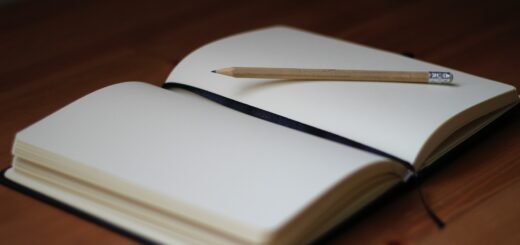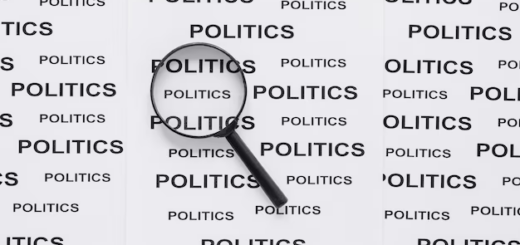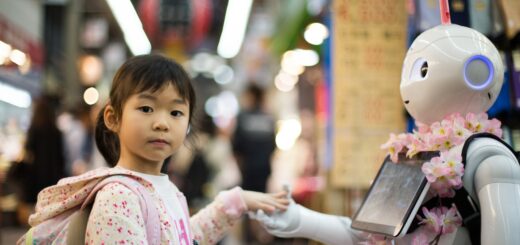The Current Arrangement of Political Forces in South Africa: Parties, Groups, and Formations

What is South Africa today in terms of the political balance of power? Why do the media of various states (American), quite distant from South Africa and seemingly little interested in the processes taking place in the republic, suddenly start shooting reports about the atrocities in South Africa, blatantly exaggerating the colors? Why is it that all of a sudden Africa’s most developed state is being given a grim fate and told that the country will soon join the list of “failed states”? The reason for this, in my opinion, is not so much that South Africa has been experiencing very serious internal economic and social problems since the African National Congress came to power, but rather that it is very difficult to make a correct forecast for South Africa in general, even for the short term. The reason for this is the unusually motley (like the South African wilderness) internal political arena, where one can discover predators of all sorts. The existing movements in South Africa have received little attention until recently, making it very difficult to assess their real power and influence.
In what dimension are the parties and groups that exist in South Africa worth considering in general?
The two most pressing issues on the agenda are the expropriation of land from whites without compensation and the derivative issue of a supposed “reverse apartheid. Alas, the relationship between whites, blacks, and coloreds is a red thread running through South African history, and avoiding this perhaps sensitive issue would be wrong and no analysis would be forthcoming.
BLF (Black First Land First)
This organization is relatively new in South Africa (it broke away from the EFF in 2015). It consists exclusively of representatives of the black (not even colored) population and preaches the absolute superiority of the rights of blacks over whites (it does not matter whether they are Boers, British, French, Irish – in general, in the eyes of this radical group the descendants of all white people who once landed in southern Africa are guilty before the original inhabitants of the continent). A rather uncomplicated and attractive idea in the post-apartheid era, it captures the minds of blacks and is rapidly gaining popularity – the organization is even making inroads into parliament. This group, whose members openly chant the slogans “one bullet, one settler” and “let’s kill for the land”, also officially belongs to the extreme left wing of the political spectrum, and expresses their respect for the teachings of Marxism-Leninism, but only in words. In fact, the group’s goal (there is no clearly defined political program) is to expropriate land from whites (and evict them from South Africa). Due to the fact that the BLF, like the ruling African National Congress, preaches leftist ideas, the organization does not meet any resistance from the authorities, although the slogans it proclaims contradict the South African constitution, which first established equality of all races after apartheid. The group also has close contacts with former South African President Jacob Zuma and the notorious Gupta family. As a result, since 2015 an openly radical organization has emerged in South Africa, provoking groups at the other end of the political spectrum (to be discussed later) and currently the main catalyst for a possible civil war. The group may not be openly supported by the authorities, but it is certainly not hindered by anyone, which means that the BLF’s opportunities may be quite extensive.
EFF (Economic Freedom Fighters)
Meanwhile, we move on to the less radical elements of South Africa’s domestic political scene. The EFF (“economic freedom fighters”) is already a full-fledged political party, just like the BLF, which was created relatively recently (2013), or rather, separated from the African National Congress and preaches communist principles and ideals. However, the representatives of the “fighters” sound rather hostile rhetoric against whites as well. Officially, the EFF program does not mention expropriation of land from whites as a goal, but party leaders, especially Julius Malema, make rather harsh and frightening statements about the white population. For example, he began his 2016 campaign with the phrase, “I don’t call for the killing of whites, at least not yet. The difference between the EFF and the BLF is that, first, the party is present in parliament (the third largest) and participates in lawmaking; second, its declared goals still lean more toward fighting capitalists; third, the “fighters” are less radicalized and not ready for open confrontation with whites. Bottom line: the party has an officially recognized political weight, and its members are probably not outspoken enough about their views and ideas. Potentially, the party could significantly tighten its rhetoric and reach the same level as its “daughter”, the BLF.
ANC (African National Congress)
This acronym is familiar to anyone who has even skimmed through history and international relations in Africa. The African National Congress (the ancestor of the above two groups), which was established back in 1912, is the oldest and most numerous of the present-day parties in South Africa. The ANC has also been the ruling party for 25 years (i.e. since the fall of apartheid) and has been at the helm of the so-called National Democratic Revolution (NDR), whose goal to this day is to finally eliminate the socio-economic inequalities of the colonial and apartheid era in the country.
In terms of its position on the political spectrum, the ANC can be described as a centrist, left-wing party. On the one hand, the ANC is not so explicit about the need to fight capitalism and build a society and economy based on the ideology of communism. On the other hand, in 2015 the party praised the Communist Party of China, stating that its model of development was the most successful. The ANC does not make such harsh and ill-considered statements about the white population as the splinter “fighters,” but its sympathy for the black population is still visible. For example, the ANC initiated national quotas, which caused many whites to lose their jobs because there were “too many of them. Also, the ANC remains somewhat indifferent to the problem of the killing of white farmers, of whom (as a result of farm raids) there have been some 40,000 deaths since 1994. Without a doubt, the ANC is firmly in the position of voters, and the black population, which tends to support Congress, is only growing, but this does not mean that the party’s position is unshakable.
DA (Democratic Alliance)
The Democratic Alliance of South Africa, the official opposition to the incumbent ANC, is the centrist wing of the political spectrum. Without any unnecessary and boring descriptions the only thing to say is that the Democratic Alliance is a party mostly voted for by whites and coloureds (as you can tell even by the map of the municipal elections: the Alliance wins in the Western provinces where most of the Afrikaner Boers live). Why? Probably because the Democratic Alliance is a kind of alternative to the ANC: those whites who want to continue building a society based on the principles of equality and non-discrimination, on the principles of liberalism and market economy and who, at the same time, are not openly radical in their ideas, choose the Alliance. At present, the Democratic Alliance is the most relaxed and neutral party in South Africa, living up to its slogan “One Nation, One Future. Despite the fact that the party was not notable, like the ANC, for corruption scandals, still it was not able to keep its reputation absolutely unspoiled. For example, there have been cases when party members were suspended for some time for making racist statements (already against blacks) and for expressing sympathy for apartheid-era politicians. On the whole, however, the party has proven to be effective and committed to its principles (as I can tell from talking to locals).
FF+ (Freedom Front Plus)
“The Free Front” is another opposition force that split off from the Afrikaner Volksfront (Afrikaner People’s Front) movement in its time. This party focuses more on the rights of the Boers, on Christian values, and currently on protecting Afrikaners from “land expropriation without compensation.
“The Free Front does not make openly racist statements (as do even the most right-wing and conservative white groups in South Africa), but it does promote the idea of a separate “Volkstaat” (“People’s State”) for the Boers.
The party has only 4 seats in the Parliament (only in the lower house) and, being the opposition (and a very uncomfortable opposition, which constantly draws public attention to the murders on farms) does not have the same freedom of action or influence as the ANC and similar groups. However, the party is sympathetic to the same victims of attacks – white farmers – who make up the core of the Free Front’s voters. The party, despite its essentially state of siege, is still trying to make its voice heard. In April of this year, for example, members of the Free Front filed a lawsuit against the BLF demanding that the anti-white leftist radicals be barred from running in the country’s parliamentary elections.


